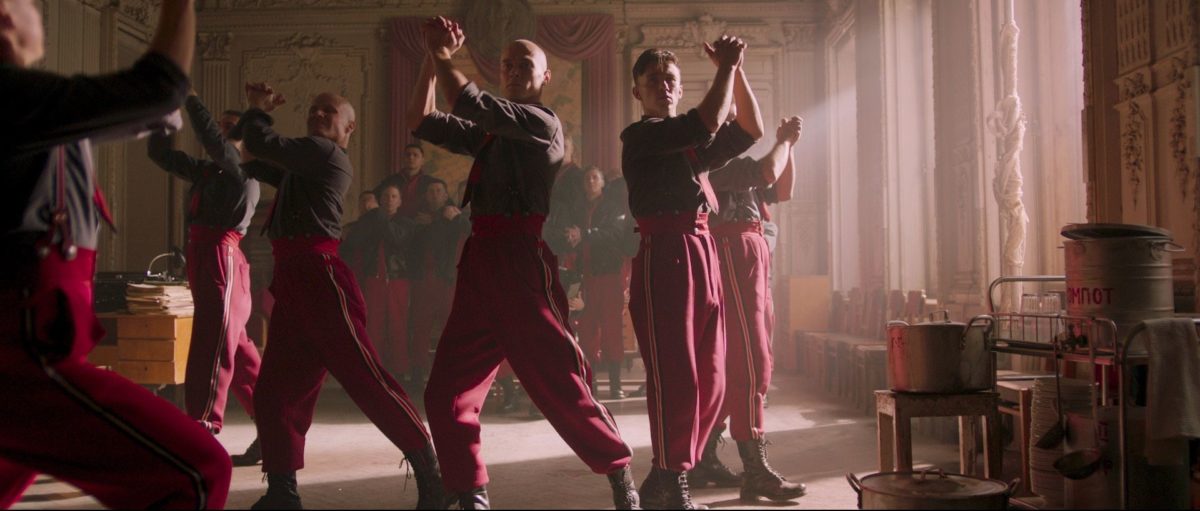Every Punishment Must Have a Crime
Violence, Vantablack humour and questionable ethical choices constitute the Holy Trinity propelling the plot of Captain Volkonogov Escaped, a tightly-constructed drama/thriller about a National Security Service captain trying to “gamify” his ascendance to Heaven. Directed by Natalya Merkulova and Aleksey Chupov, the movie meets most of the success criteria for (commercial) contemporary cinema of its genre: unscrupulous characters, fast-paced action and stylized cinematography. However, Captain Volkonogov Escaped rises above the basic template, screaming for the viewer’s attention for its 126-minute runtime. Set in a late 1930s Soviet city (never explicitly named, but reminiscent of Leningrad), the film’s historical references act as a launching pad for a story arc so wild it just might feel relatable to the average audience member. Narratively, Captain Volkonogov Escaped resembles Dante Alighieri’s trip through Hell, Purgatory and Heaven, with the only difference that Volkonogov works his way up via fists and a tunnel-vision thirst for “forgiveness points”, unlike Dante’s intellectual conversations with the three planes’ inhabitants.
Fueled by mindless patriotism and testosterone-induced forced-feedback loops only possible in an environment as oppressive as the (para)military forces, the movie closely follows Captain Volkonogov’s escape from the clutches of the National Security Service, trying to “clean up” their ranks after an internal re-evaluation. Perceiving the forgiveness of the relatives of the “unreliable elements” that NSS has tortured into incrimination and death as a sure-way ticket to Heaven, Volkonogov visits many of them in a vain attempt to calm his own tormented conscience. As the Captain’s plot armour grows (predictably) thicker, the intensity of his PTSD flashbacks increases—this is how the audience meets young Volkonogov, working to gain his superiors’ favour by taking “preventative action against potential enemies”, thus marching away from empathy. The Captain’s personal development arc would be hard to believe, if not for Yuriy Borisov’s incredibly nuanced acting, ranging from an almost whimsical lightness to an effortless psychopath-like emptiness. Opposite of him, Veretennikov (Volkonogov’s best friend and, later on, metaphorical Virgil—played by Nikita Kukushkin) feels like a one-dimensional caricature of a soldier used to add sentimental and hallucinatory elements to the relatively straightforward story.
To counter-balance the simplicity of the narrative, Merkulova and Chupov use every single shock-inducing method available. The camera bounces from unstable hand-held shots following the characters, to wide frames accentuating gory set details, to emotional close-ups of Volkonogov and the rest of the cast. Mart Taniel’s diverse cinematography is further amplified by the consistent use of the human body as a story-telling vessel. Bodies are beaten, caressed, contorted, washed, tied, touched and cut on-screen with such frequency that they quickly become key visual symbols within the film’s world. Heightening the brutal, yet captivating atmosphere, several renditions of a haunting Russian folk song pierce the story at important turning points.
Drowning in bright red, Captain Volkonogov Escaped doesn’t shy away from stomach-turning images and ideas. Similar to Dante, Volkonogov pushes forward and up with Heaven as his final destination—only to reach the stunning clouds and finally understand he belongs in Hell. Worn down by the wicked game of empty catchphrases and long-lost moral values, he decides to abort the mission. Unlike Dante who lives to receive knowledge no other human has ever reached, Captain Volkonogov simply… escapes.
